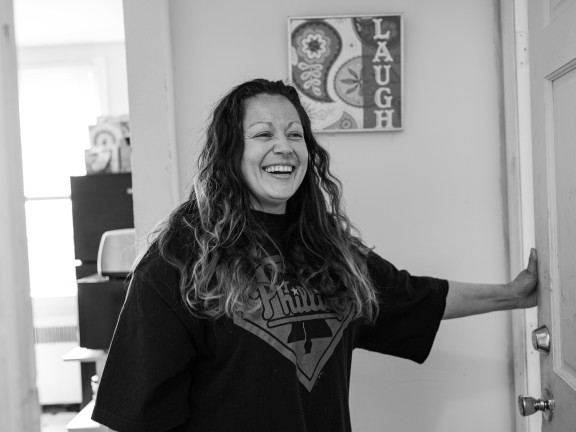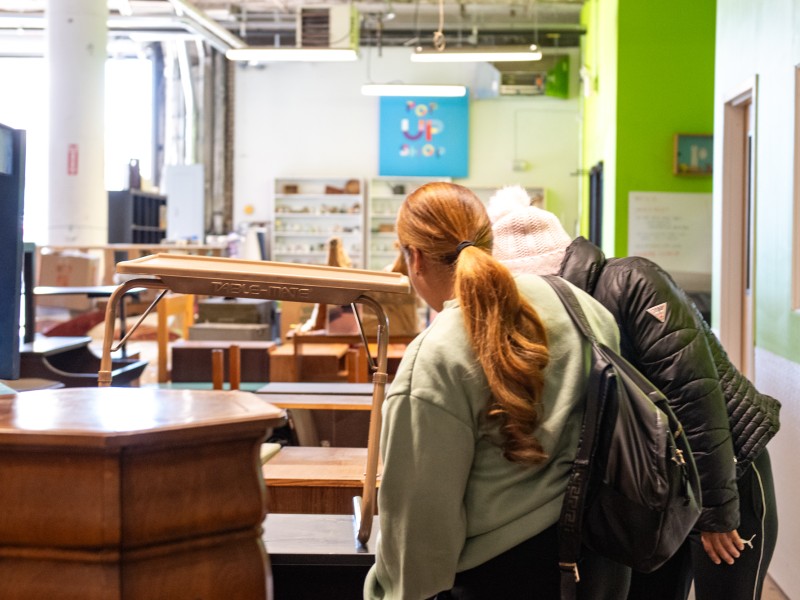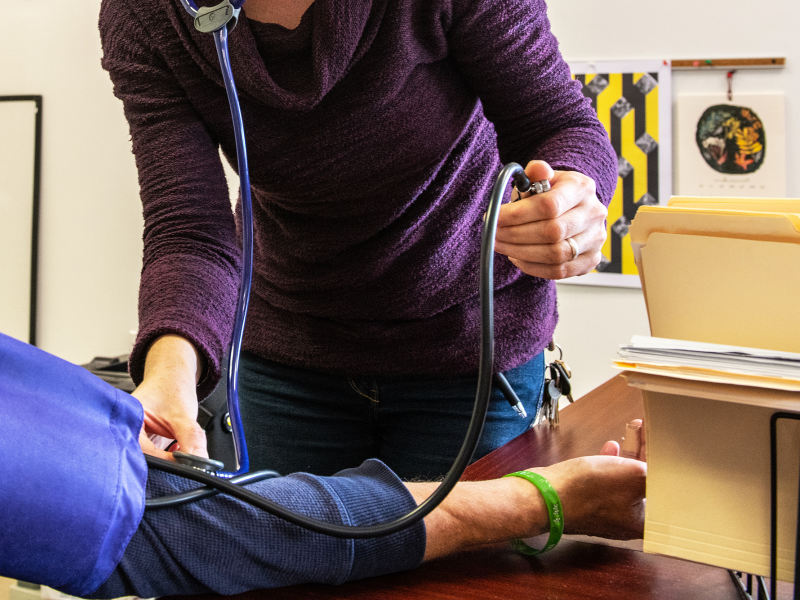World Kindness Day

There are a lot of recognition days out there – National Pancake Day, National Kissing Day, World Chocolate Day – and it’s impossible for us to recognize them all. However, today is World Kindness Day and that stands out as something that we should recognize!
Pathways was founded 15 years ago by Christine Simiriglia. Chris was key in building a culture based on treating everyone, from our staff to our participants to our landlords and beyond – with grace and kindness. It’s become such an important part of what we do that we built it into our organizational values.
What exactly does practicing kindness look like day to day here at Pathways?
One example, which Chris uses often, is that our staff should always feel empowered to support a participant’s need in the moment without fear that they will not be reimbursed. Standing outside in 20-degree weather with a participant who doesn’t have a coat? Buy them a coat! We’ll reimburse you. Participant discharged from the hospital without any shoes? Buy them shoes! We’ll reimburse you. Kindness, in that moment, will always be more important than getting approvals or following strict spending limits.
Another example is even simpler. Every day, our participants hang out outside of our building. Sometimes they’re waiting for the office to open to visit their team, and sometimes they just want to get out of the house and get some fresh air. So, there’s almost always someone sitting on the benches in front of our building. And without fail, I watch our staff pass by every day and say hello. Regardless of whether they know the participant's name or have worked with them directly, whether the participant is smiling or frowning, our staff say hello. The simple act of kindness in acknowledging someone’s existence is on display every day at our office.
Our participants want you to know that they’re human. They matter. Just like you or me, they’re someone...
And that matters more than you think. We recently conducted a focus group with our participants to ask them how they felt about the way we share stories at Pathways. The biggest takeaway? Our participants want you to know that they’re human. They matter. Just like you or me, they’re someone. They’ve spent so much time living unsheltered and being passed by on the street by hundreds of people who won’t meet their eye or acknowledge their presence. They are treated as less than, solely because of their living situation.
Now, I can almost hear you thinking to yourself “but isn’t it their fault that they’re homeless?”
My answer is yes and no. And more often than not, no.
A third of people experiencing homelessness have a serious mental illness. Researchers have estimated unemployment rates among people experiencing homelessness ranging from 57% to over 90% compared to 3.6% for the general United States population. Racial minorities experience homelessness at a disproportionate rate. For example, black or African Americans make up 13% of the general population but 40% of the homeless population. In the US, people who have experienced incarceration are 10 times more likely than the general public to experience homelessness. Americans make up less than 5% of the world's population while earning more than 20% of the world's total income. Despite this, one in 10 Americans lives in poverty, according to the Census Bureau.
What I’m trying to say, through all those statistics, is that the deck is truly stacked against them. Even if they work hard and take advantage of available resources, it's still possible and likely they'll fall through the cracks and experience homelessness.
And homelessness is not easy. It's a hustle. You’re on alert 24/7, because you don’t have a safe place. Navigating the complicated housing system isn’t easy, especially without access to a phone or internet to figure out where you can go for services. You don’t have money for transportation. So you’ve got to figure out how to get there once you’ve tracked down where, exactly, “there” is. Most programs have strict hours and can’t accommodate you if you’re late. Finding a job is nearly impossible without a reliable transportation, contact information, or safe place to wash yourself or your clothing. You learn how to hustle, you learn your schedule, and you must stick to it or else you’ll be going without food, sleep, or shelter until you can pick it back up again. Our participants very much want you to know that they are not lazy; they’re trying their best in a broken system.
Lead with Kindness
So next time you see someone experiencing homelessness, lead with kindness. Don’t avert your eyes. You don’t have to do a whole song and dance, but just make eye contact and give a small nod. That simple act of kindness may be what gets them through the day, and it costs you nothing to acknowledge them as fellow humans. Remember how powerful kindness can be, not just on World Kindness Day, but every day.


